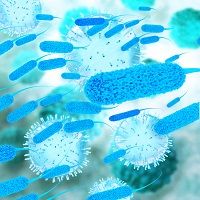E. Coli Bacteria Gaining Momentum Over Time
While most Escherichia coli (E. coli) live in guts of people and animals are harmless, the E. coli strain 0157 is continuing to evolve, according to a study published in Microbial Genomics.

While most Escherichia coli (E. coli) live in guts of people and animals are harmless, the E. coli strain 0157 is continuing to evolve, according to a study published in Microbial Genomics. As such, the study authors stressed it should be monitored closely.
Researchers from the University of Edinburgh analyzed data from studies on the E. coli strain in order to test its responsibility for clinical cases in the United Kingdom in the past 30 years. Out of almost 500 E. coli investigations, the researchers found two strain replacements that have been prevalent during the observation period. The two strains, called stx1 and stx2a, were found to be the most serious among clinical cases.
The researchers used the decoded genetic sequences from the E. coli samples to estimate the strains have been in existence for more than 175 years. Most of the ancestral strains, the researchers continued, carried only stx1 strains. Approximately 60 years ago, the stx2a strains began to be acquired. The strain, which caused the most human damage, starting with severe food poisoning outbreaks, showed up in the stx2a strain around 30 years ago.
“Thankfully, dangerous E. coli outbreaks remain relatively rare,” explained study researcher Professor David Gally in a press release. “Our research underlines the need to study the genetic code of strains that cause infections in humans and those present in farmed animals. Good hygiene practices — both with food and when out enjoying the countryside – can help to minimize the risk of these and other severe infections. Our work endeavors to understand how these toxic strains persist in cattle and the best ways to prevent them spreading to us.”
According to research, cows infected with the stx2a strain tend to produce more levels of the bacteria in their manure; otherwise, cows are not affected by the disease and are the main vessel for its spread to humans.
The authors continued that recent infections of E. coli are typically strains that only carry stx2a, and that preliminary studies demonstrated these strains could be even more dangerous than those to date.